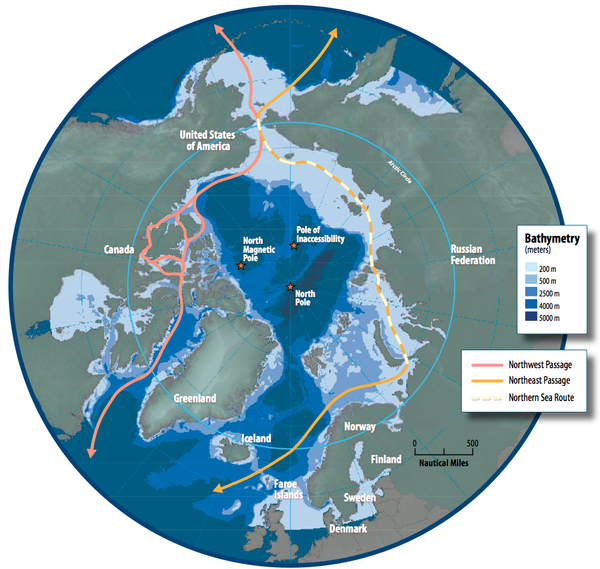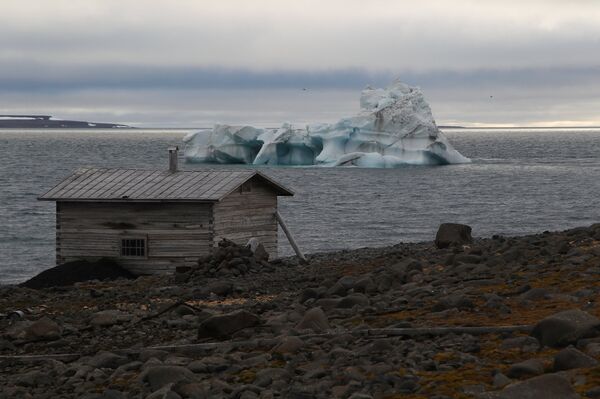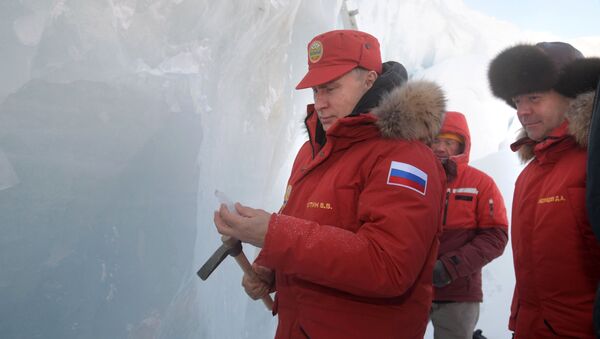On Monday, 14 September, a huge chunk of glacier in the north east of Greenland broke off in a development which scientists say is evidence of climate change.
The National Geological Survey of Denmark and Greenland (GEUS) said the giant slab of ice - measuring 42 square miles - fell into a fjord called Nioghalvfjerdsfjorden.
110 square kilometres of ice has broken away from Greenland’s biggest ice shelf.
— tortoise (@tortoise) September 14, 2020
Known as 79N, or Nioghalvfjerdsfjorden to its friends, the dislodged ice exists in a region that is likely to become a melting hotspot.
Read more in today's #Sensemakerhttps://t.co/H2v8ZS5Er7 pic.twitter.com/LxQHx7KnCP
Professor Jason Box, from GEUS, said: "We should be very concerned about what appears to be progressive disintegration at the Arctic's largest remaining ice shelf."
Greenpeace spokeswoman Laura Meller, on board the ship Arctic Sunrise, said: "This is yet another alarm bell being rung by the climate crisis in a rapidly heating Arctic.''
But while global warming represents a huge challenge for the planet, the rising temperatures are proving a boon to scientists interested in Ice Age mammals.
Researchers said on Monday that reindeer herders in the Russian Arctic had found the perfectly preserved carcass of a cave bear dating from the Ice Age.
The bear was discovered on Bolshoy Lyakhovsky Island after the melting permafrost gave it up. Cave bears became extinct 15,000 years ago.
First ever preserved grown up cave bear - even its nose is intact - unearthed on the Arctic island. Separately at least one preserved carcass of a cave bear cub found on the mainland of Yakutia, with scientists hopeful of obtaining its DNA https://t.co/GCVpvc0DSy pic.twitter.com/Z65E9ktJZd
— The Siberian Times (@siberian_times) September 12, 2020
Lena Grigorieva, from the North-Eastern Federal University in Yakutsk, said: "This find is of great importance for the whole world.''
So will global warming influence Russia's chairmanship of the Arctic Council?
Russia last chaired the Arctic Council between 2004 and 2006 and it will be in the chair from 2021 until 2023.
On the Arctic Council website Russia says during its upcoming chairmanship it "plans to focus on economic, social and environmental sustainable development in the Arctic region."
Russia says it wants to work in an atmosphere of "respect and consideration" on "various areas from research and implementation of environmental projects to the use of the Northern Sea Route."
President Vladimir Putin has admitted climate change is affecting the planet and has announced plans to mitigate the damage but he has also said Russia should "adapt" to warmer temperatures.

One of the biggest advantages is the melting of pack ice along the Northern Sea Route, which runs from the Barents Sea all the way to the Bering Strait.
The 7,950 mile route, often known as the Northeast Passage, shaves between 10 and 15 days off the time taken for ships to travel between western Europe and the Far East.
The Netherlands Bureau for Economic Policy Analysis estimated in 2015 that the Northern Sea Route may be completely free of ice as early as 2030, which would allow giant container ships and other vessels to travel quicker from China, Japan or South Korea to Europe.
The #Arctic is undergoing rapid environmental & social changes. As human activity increases in the region, so does the risk of oil spills. Learn how @EPPR_Arctic built a tool to help #oilspill responders prepare safe & effective operations in the Arctic: https://t.co/da4lxFwCqC pic.twitter.com/05fni64tqp
— Arctic Council (@ArcticCouncil) September 15, 2020
Environmentalists are concerned a rise in maritime traffic would increase pollution in the Arctic.
Russia meanwhile is doing its bit to clean up the Arctic.
The Russian government is removing the wrecks of dozens of old Soviet-era nuclear submarines from Andreyeva Bay, near Murmansk.

In 2019 the British nuclear safety company Nuvia conducted a feasibility study which found there were 18,000 radioactive objects in the Arctic Ocean, most of which do not have elevated levels of gamma radiation.
Russia’s state nuclear corporation Rosatom has said that in the next 12 years it will raise and remove the most dangerous objects - two nuclear submarines and the reactor compartments from three nuclear submarines and the icebreaker Lenin.
Rosatom’s head of international technical assistance, Anatoly Grigoriev, told the BBC recently: “We consider even the extremely low probability of radioactive materials leaking from these objects as posing an unacceptable risk for the ecosystems of the Arctic.”
Ambassador Sullivan met Friday with FirstDepFM Titov to discuss #Arctic issues. As #Russia assumes the chair of the multilateral Arctic Council in May 2021, we look forward to working through the Arctic Council to ensure the Arctic remains a territory of dialogue and cooperation.
— Rebecca Ross (@USEmbRuPress) August 29, 2020
Around 2.5 million Russians live inside the Arctic Circle, many of them from indigenous tribes like the Saami, Yupik and Chukchi.
Earlier this year Nikolay Korchunov, Russia's Ambassador at Large for Arctic Cooperation, said: "The human dimension, the Arctic inhabitants including indigenous peoples, will of course be stressed and underlined throughout our forthcoming chairmanship."




